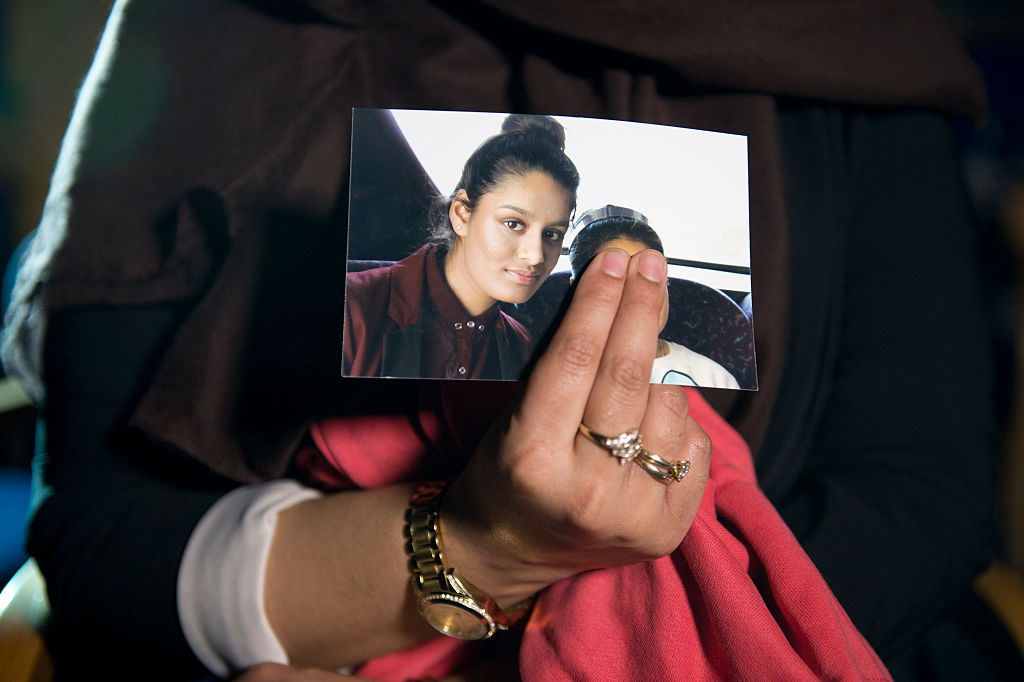Whatever the arguments over the Government’s decision to revoke Isis bride Shamima Begum’s British citizenship, the teenager’s future now depends on one thing: will the courts determine she is a dual national who is eligible for Bangladeshi citizenship? If so, Sajid Javid’s decision is lawful, as this means that the loss of her British citizenship will not leave her stateless. But what does Bangladesh make of this row?
The view from Dhaka has been clear: we don’t want her. In a statement issued this week, the country’s foreign ministry said:“The government of Bangladesh is deeply concerned that she has been erroneously identified as a holder of dual citizenship shared with Bangladesh alongside her birthplace, the United Kingdom. Bangladesh asserts that Shamima Begum is not a Bangladeshi citizen. She is a British citizen by birth and has never applied for dual nationality with Bangladesh.”
Bangladesh’s state foreign minister Shahriar Alam was unequivocal:
This reaction is understandable. Bangladesh has its own jihadi problem to deal with. Like Britain, it has been victim to multiple attacks; in one incident in July 2016, Islamist terrorists killed 20 people at an upmarket restaurant in Dhaka. The Bangladeshi government is right not to want to facilitate the entry of any additional sympathisers, particularly those who have never even lived in the country.“There is no question of her being allowed to enter into Bangladesh.”
Yet the situation is not this straightforward. This is because the Bangladesh foreign ministry statements are not only inconsistent with the country’s law but also contradict a formal diplomatic written opinion it gave the British government privately less than a year ago.
First to the law. There are no Bangladeshi court decisions dealing with the question of whether someone in Shamima’s position is Bangladeshi or not, but there have been two recent decisions of the UK’s Special Immigration Appeal Commission which dealt with three Bangladeshis, two of whom (referred to as G3 and E3) were in almost identical legal positions to Begum.
Both cases – one decided in December 2017, the other in November 2018 – found that Bangladesh law was clear; according to section 5 and 14 of Bangladesh’s Citizenship Act 1951, people born in the UK to parents with Bangladeshi citizenship would, at the time of their birth, be Bangladeshi citizens and would at least remain so until the age of 21. Both these decisions appear to contradict the Bangladesh government position on Begum. This strongly suggests that the Home Office’s decision to exclude the 19-year-old teenager will in due course be found lawful.
Shamima’s only hope is that the British court will takes into consideration that, whatever the law may say, the Bangladesh government will treat her as though she does not have Bangladeshi citizenship. In this situation, she may also be able to avoid being stripped of her citizenship if she can show that the decision is not proportionate to protecting national security.
But Shamima’s lawyers face another problem here. Last year, the Bangladesh government sent a Note Verbale (a form of diplomatic correspondence) to the British government appearing to contradict what it now says about Begum. The SIAC cases involving G3 and E3 explain why it did so. Unlike Shamima, these two were over the age of 21. This meant they would only be considered to have retained their Bangladeshi citizenship beyond this age if a Bangladesh presidential order applied to them. The court had to decide whether this order, issued in 2008, which dealt with “keeping intact the Bangladeshi citizenship for those who have obtained the citizenship of the United Kingdom” applied only to naturalised British citizens or also Bangladeshis, like them, who were born British.
G3’s case was decided in December 2017, with the court ruling that the order did not apply to him. As a result, G3 stopped being Bangladeshi at the age of 21. This meant that the Home Office lost the case, since removing British citizenship would make G3 stateless.
Following this legal defeat, in January 2018 the British High Commission in Dhaka wrote to the Bangladesh government seeking clarification on the application of the 2008 presidential order. Note Verbales are usually confidential but we know something about the Bangladesh government response as it is referred to in the judgement of the case of E3, decided in November 2018. The Bangladesh government’s Note Verbale appeared to take a different view to the court, stating that the 2008 order did apply to those who were “British at birth” and “who had reached the age of 21” and that the order had “retrospective effect”.
This meant that last April, the Bangladesh government accepted that people born in the UK to parents with Bangladeshi citizenship were Bangladeshi citizens and that they retained this even after the age of 21. This is, of course, in stark contrast to the public statement made this week by the Bangladesh government.
Interestingly, despite this, the SIAC court did not change its view on the legal interpretation of 2008 order and the Home Office lost again.
However, according to lawyers dealing with this case, the Bangladesh Note Verbale is now a key focus of the Home Office appeal to the Court of Appeal, to be heard in October, where it will argue that the SIAC court should have given much more weight to the position of the government of Bangladesh.
One may have sympathy with Bangladesh in not wanting to take Shamima Begum, but it’s current denial of her Bangladesh nationality might not be sustainable in law. If the Court of Appeal accepts the Home Office position that the Note Verbale should be decisive, Bangladesh will also have to deal with other dual nationals aged over 21, whose British citizenship, like G3 and E3, the British government has revoked. A diplomatic conflict is brewing. Once again, in the case of Shamima Begum, there are no easy answers.
David Bergman is a journalist who until recently was based in Bangladesh





Comments